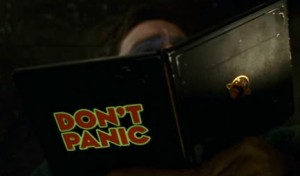 John Nash, Nobel-prize winning mathematician, died very recently in a tragic auto accident. His own struggle with mental illness was portrayed in the film A Beautiful Mind, which won Best Picture. Around the time of the film’s release, I recall an interview where Nash was asked what finally made the voices in his head go away. He explained they hadn’t gone away entirely. He’d just learned not to pay much attention to them.
John Nash, Nobel-prize winning mathematician, died very recently in a tragic auto accident. His own struggle with mental illness was portrayed in the film A Beautiful Mind, which won Best Picture. Around the time of the film’s release, I recall an interview where Nash was asked what finally made the voices in his head go away. He explained they hadn’t gone away entirely. He’d just learned not to pay much attention to them.
On some level, we have access to some power of choice even where a disease is threatening our very sanity. There’s always something we can do to make things better for ourselves. It’s our job to find that thing and put it to work for us.
On a recent trip to California, Cecile and I met up with a married couple we hadn’t seen in way too many years. As we were reminiscing about the old days, one of our friends shocked us with an announcement. He’d been diagnosed with dementia. The tests were in. It was still in the relatively early stages but he was having symptoms: sometimes he didn’t know where he was, or the day of the week. When such episodes struck, he had resolved not to succumb to mounting anxiety. Instead, he calmed himself. Gradually he would become oriented again. This had allowed him to continue to live almost normally. His one major concession had been to give up driving.
You never know what to say to people you care about when there’s news such as this. “I think I get it,” I said, finally. “You can do that because you’re solid at the core.” He nodded in agreement.
I happened to know my friend’s personal history includes the same sort of challenges that often come with recovery from addiction. It occurred to me that maybe it was through those struggles that we develop the strength we rely on later.
Cecile likes to say that most people live by the motto, “When in danger, when in doubt, run in circles, scream and shout.” My friend illustrates the power of the opposite approach. When danger looms, he focuses first on himself.
When you give in to panic, you find yourself with two problems rather than one: The thing that’s scaring you, and the fact that you’re panicky and can’t reason clearly. This to me is a lesson that can benefit everyone who suffers from a serious emotional illness.
Maybe the Hitchiker’s Guide had it right: Don’t Panic. And don’t be surprised if somehow, like my friend, you discover that you’re solid at the core.










